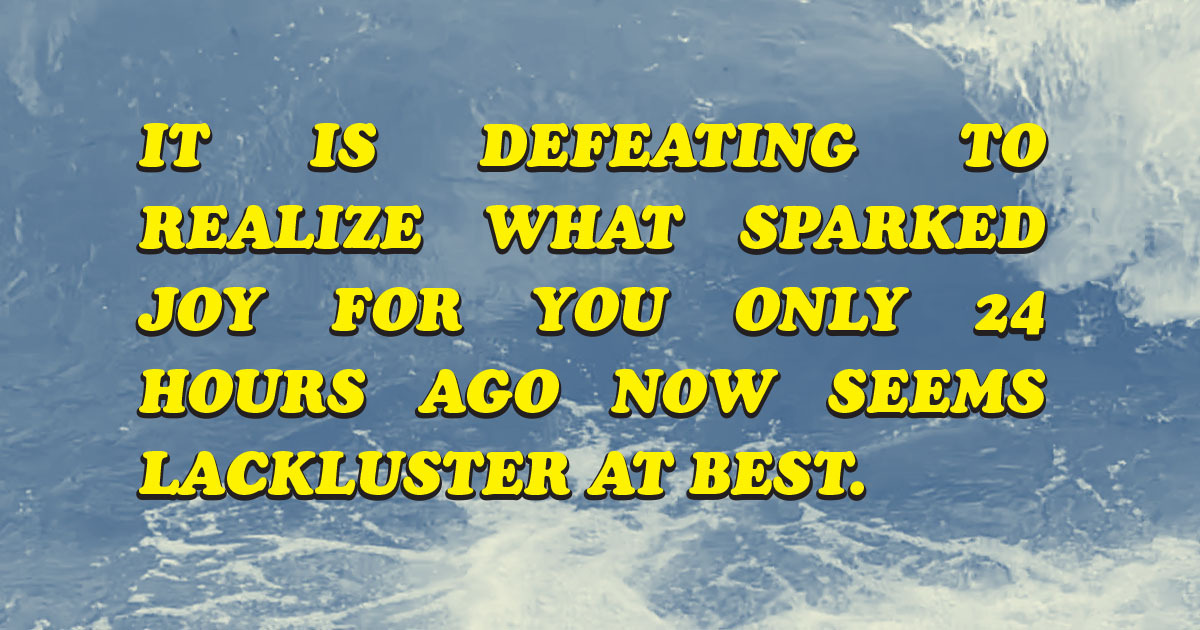When I was young, I spent countless hours on the beach, playing in the ocean’s waves. I remember one afternoon my family and I were on a walk, and I wanted to go and play in the water. I waded out and turned around for a brief moment to smile at my mom when out of nowhere a wave crashed into and over me. The wave came up behind me so fast—too fast. I could not move out of the way or run back to the shore—there simply was no time. I was pulled underwater by sheer force. I remember feeling panicked. I remember fighting against the wave with every ounce of strength my body had. Eventually, as the wave subsided and the waters receded, I was able to find my footing and make my way back to shore.
This memory often comes to the forefront of my mind when I reflect on my struggles with depression, specifically my diagnosis of Persistent Depressive Disorder (PDD).
While PDD shares many of the same symptoms as other forms of depression, it is unique in that it is a continuous, long-term form.
Feelings of sadness, emptiness, lack of interest in daily activities, difficulty concentrating, irritability, low self-esteem, and fatigue typically persist off and on for years at a time. Because of this at-length nature, PDD symptoms can be especially difficult to cope with, as the light at the end of the tunnel can seem so very far away.
When you have PDD, there are stretches of time when everything seems to be going well: there is an abundance of sunlight, feelings of peace, and the waters are calm. Until one day, that period of tranquility is swallowed whole. That is the hardest part for me; I never see the wave of depression coming. It is a terrible feeling to wake up one morning not having the energy to get out of bed when the day before you were up and alert even before your alarm made a sound.
It is defeating to realize what sparked joy for you only 24 hours ago now seems lackluster at best.
And making plans in advance, not knowing if you will be in the mood for them by the time they come around? What a difficult and frustrating task. Because it is without warning that the tidal wave hits and drags me under its waters.

When the wave does come, I am often instantly defeated, feeling there is nothing I can do to stop it. Who am I to overpower such a powerful force? I have no choice but to let it crash down right on top of me and hope I can find the surface again with my breath intact.
Just as I did in the ocean during that beach vacation, I used to fight these waves of depression kicking, screaming, and thrashing around with all the strength I could muster. I was so angry that I was again back in it, forced to hold my breath and fight for an ounce of relief. But struggling only seemed to make it worse.
Wrestling the depression only left me feeling defeated, exhausted, and ironically, weak.
This past fall, I began working with a new therapist. To be quite honest, she is a gem and I am lucky to be supported and guided by her. And together, we are working on the concept of acceptance. Acceptance of my diagnosis, yes, but more importantly, acceptance of myself. I have since entered into a new strategic plan when it comes to my mental health. I have reached the realization that if I stop fighting back and instead simply find stillness and let myself hold the feelings, the heaviness, and the sheer weight of them, I do not experience defeat, exhaustion, or perceived weakness quite so much. If I let the wave wash over me instead of scrambling to stay above it, my true strength persists. Because in allowing myself to genuinely honor my feelings versus trying so adamantly to push them away or conquer them “once and for all,” I am willing to acknowledge who I am in every season of existence—whether that be one marked by calm waters or tumultuous waves.
Genuine self-acceptance is my ultimate goal, and while I am not fully there yet, I have so much hope that one day I will be. Because the beautiful thing about the tide is that it is always merciful. It always brings me back to shore in the end.
Depression has a way of making us feel incredibly isolated. We’re here to remind you of the truth that you are not alone. We encourage you to use TWLOHA’s FIND HELP Tool to locate professional help and to read more stories like this one here. If you reside outside of the US, please browse our growing International Resources database. You can also text TWLOHA to 741741 to be connected for free, 24/7 to a trained Crisis Text Line counselor. If it’s encouragement or a listening ear that you need, email our team at [email protected].
Carla Smeltzley
Ty for this great organization, my bday is in Sept and want to do this in honor so many, including myself..survivor
Stephanie
That was such a well written piece, thank you so much!! I didn’t realize there was a PDD diagnosis, sounds like something I’m currently struggling to figure out with my depression. I’ll look into it more.